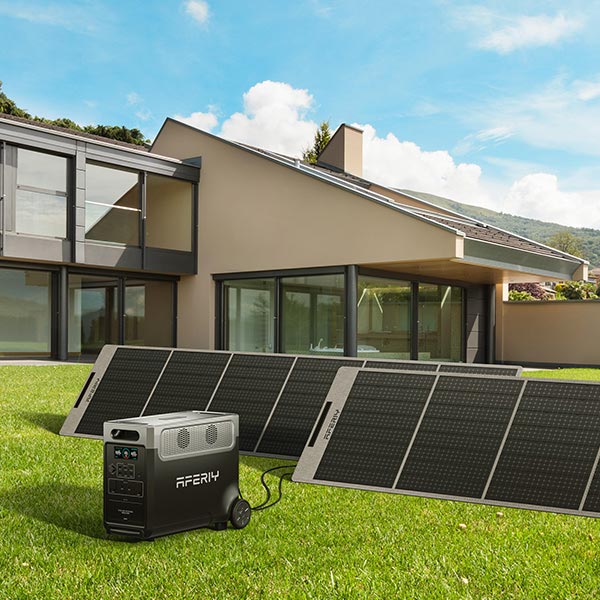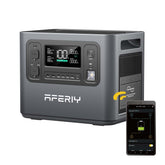How To Make a Generator Quiet
Portable generators play a pivotal role in providing power during outages and outdoor activities. However, their operational noise can often be a significant drawback. This article delves into the methods and techniques to mitigate generator noise, creating a more harmonious environment for everyone involved.
Why is Generator Noise a Problem?

Generator noise extends beyond a mere inconvenience. It disrupts the tranquility of homes and outdoor spaces, impacting relaxation, concentration, and overall quality of life. Moreover, excessive noise can strain relationships with neighbors, leading to conflicts and a less harmonious community environment. Additionally, local noise regulations are becoming stricter, making it essential to address generator noise for legal compliance and the well-being of everyone in the vicinity.
Understanding Generator Noise
Generator noise stems from multiple components, including the engine, exhaust, and mechanical vibrations. Understanding how these parts contribute to noise helps in finding effective solutions. Noise levels are measured in decibels (dB), and a small increase in dB translates to a substantial increase in noise intensity.
-
Exhaust Systems: The exhaust system is a significant noise source. The rapid expulsion of exhaust gases generates a distinctive sound, often amplified by the exhaust pipe's shape and length. Modern generators come with mufflers to mitigate this noise, but there's room for further improvement.
-
Engine Vibrations: Vibrations from the engine and internal components propagate through the generator's structure, producing secondary noises. These vibrations can be transferred to the ground or nearby surfaces, creating additional sound.
- Air Intake and Cooling Fans: The air intake and cooling fans contribute to the overall sound as they draw in air to regulate temperature. The speed and design of these fans influence noise levels.
- Decibel Scale: Noise levels are measured in decibels (dB). Every 10 dB increase represents a tenfold increase in sound intensity. For instance, a generator producing 80 dB is ten times louder than one producing 70 dB.
- Design Considerations: While quieter generator models are designed to address these factors, older or less advanced models may be noisier. Generators with an inverter produce less noise by controlling the engine speed based on the load, resulting in quieter operation.
Understanding these facets of generator noise empowers users to implement effective strategies for noise reduction, creating a more harmonious and pleasant environment for themselves and those around them.
Tips for Making a Generator Quiet

Choose a Quiet Generator Model: Opt for generators designed with noise reduction in mind, often labeled as "quiet" or "silent" models.
Optimize Location: Proper placement can significantly reduce noise. Position the generator as far away as possible from occupied areas while ensuring proper ventilation and accessibility.
Soundproofing Materials or Enclosures: Utilize soundproofing materials or build enclosures to muffle noise. Creating a barrier around the generator absorbs and deflects sound waves.
Regular Maintenance: Keep the generator in peak condition. Loose parts and inefficiencies can contribute to noise. Regular checks and maintenance can mitigate this issue.
Location Considerations for Noise Reduction

Importance of Distance from Occupied Areas
Placing your generator at an optimal distance from living spaces is crucial. Aim to position it at least 20-30 feet away from windows, doors, and outdoor seating areas. This distance not only reduces noise exposure but also minimizes the potential intrusion of exhaust fumes into living spaces.
Utilizing Natural Barriers or Structures
Nature can be an effective ally in reducing noise transmission. Strategically planting dense shrubs or trees around the generator area creates a natural sound barrier. Additionally, fences, walls, or existing structures can reflect or absorb sound waves, further diminishing the noise impact.
Elevating the Generator
In cases where possible, consider elevating the generator on a platform or platform with rubber mounts. This elevation helps disperse noise upward and away from ground-level locations, reducing the immediate noise impact on the surroundings.
By thoughtfully selecting the location and employing these strategies, you can significantly mitigate the noise emitted by your generator, fostering a quieter environment for yourself and those around you.
Use of Soundproofing Materials or Enclosures

-
Types of Soundproofing Materials: There's a variety of soundproofing materials available, each with its unique noise-dampening properties. Foam panels are effective for absorbing and diffusing sound waves. Mass-loaded vinyl, a dense material, acts as a barrier to prevent sound transmission. Acoustic blankets are versatile and easy to install, making them a popular choice for temporary setups.
-
Building a Soundproof Enclosure: Constructing an enclosure requires careful planning. Start by measuring the dimensions of your generator and creating a blueprint. Choose materials that offer a good balance of sound absorption and insulation. Ensure proper ventilation by incorporating vents or exhaust fans to prevent overheating. Keep in mind that the enclosure should also allow easy access for maintenance and refueling.
- Sealing and Insulating: Pay attention to sealing gaps, joints, and openings in the enclosure. Weatherstripping or foam tape can effectively seal any cracks where noise could leak. Consider adding a layer of insulation to the interior walls to further reduce sound transmission.
By selecting appropriate materials, constructing a well-designed enclosure, and ensuring proper sealing, you can significantly minimize generator noise. Keep in mind that soundproofing is a combination of various elements, and customization based on your specific generator and environment is key to achieving optimal results.
Regular Maintenance for Noise Reduction
Maintaining your generator isn't just about its performance; it's a key strategy to keep noise levels in check. By adhering to a regular maintenance schedule, you not only extend the lifespan of your generator but also minimize noise disruptions.
A Well-Oiled Machine:
-
Tighten Loose Parts: Vibration from a running generator can loosen bolts and components, contributing to noise. Regularly check and tighten these parts to reduce unnecessary rattling.
- Lubrication: Keep moving parts well-lubricated to minimize friction and vibration, both of which can amplify generator noise.
Air Filter Maintenance:
-
Clean or Replace Air Filters: Dirty or clogged air filters force the engine to work harder, increasing noise output. Regularly clean or replace filters as per the manufacturer's guidelines.
- Proper Ventilation: Adequate air intake and exhaust ventilation help the generator operate efficiently and quietly. Ensure vents are unobstructed and free from debris.
Sound-Dampening Measures:
-
Inspect Enclosures: If your generator is housed in an enclosure, inspect it for any signs of wear, tear, or damage. Address any issues promptly to maintain effective noise reduction.
- Replace Worn Parts: Worn-out or damaged parts can contribute to excessive noise. Regularly replace parts like mufflers, gaskets, and vibration pads if needed.
Oil and Fuel Quality:
-
Use Recommended Oils: Use high-quality engine oils recommended by the manufacturer. The right oil can contribute to smoother engine operation and reduced noise.
- Fuel Quality: Opt for clean and high-quality fuel to prevent engine misfires and excessive noise. Stale or contaminated fuel can affect performance.
Consult Manufacturer's Manual:
Follow Guidelines: The manufacturer's manual is your go-to guide for maintenance. Follow their recommendations for servicing intervals, parts replacement, and lubrication.
Regular maintenance not only ensures your generator's reliability but also helps in maintaining a peaceful environment. By proactively addressing loose parts, lubrication, air filters, and more, you contribute to noise reduction while extending the lifespan of your generator. Keep in mind that a well-maintained generator is not only quieter but also performs optimally, delivering efficient power when you need it the most.
Wrap Up
In the quest for a quieter generator, it's clear that a multi-faceted approach is the key to success. By choosing a quiet model, optimizing its location, using soundproofing materials, and conducting regular maintenance, you can significantly reduce generator noise and create a more harmonious environment for yourself and those around you.
Remember, the benefits of a quieter generator extend beyond mere comfort. They encompass enhanced relaxation, improved relationships with neighbors, compliance with noise regulations, and the satisfaction of contributing to a quieter community. As technology advances, options for noise reduction continue to evolve, making it even easier to find solutions that suit your needs.
Ultimately, the effort you invest in making your generator quieter pays off in a more peaceful atmosphere and a better quality of life. Whether you're using your generator for outdoor events, camping trips, or as a backup power source, taking steps to mitigate noise ensures that you can enjoy its benefits without the disruptions often associated with generator operation. Embrace these strategies, and let your generator's quiet efficiency be a source of pride and tranquility.











Leave a comment
Please note, comments need to be approved before they are published.